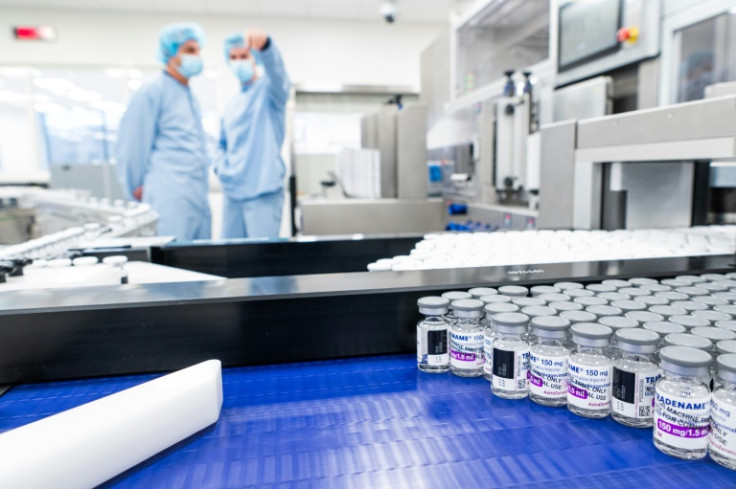India Seeks Bigger Foothold In Pharmaceutical Industry As Drugmakers Look Beyond China

KEY POINTS
- India's pharmaceutical industry is currently valued at $50 billion and will likely exceed $130 billion by 2030
- New Delhi has been heavily reliant on cheap APIs from China
- Big biotech companies are eyeing Indian manufacturers for drug development
India's global market share in the pharmaceutical business will grow as the industry, currently valued at $50 billion, is expected to exceed $130 billion by 2030.
As Western governments encourage companies to "de-risk" supply chains from China, large biotech companies are eyeing Indian manufacturers for drug development.
India's pharmaceutical industry reportedly saw an 8% year-to-date increase in exports and a 29% surge in October alone, the chairman of PharmExcil (Pharmaceuticals Export Promotion Council of India) Veeramani S V said.
"This growth is propelled by expanding market opportunities, heightened demand in the USA, and critical shortages of medicines in the US and Europe. Despite challenges in CIS countries, the global reception of Indian pharmaceuticals remains positive," Veeramani said.
He noted that the domestic market has exhibited impressive growth, exceeding 10%, putting India on a trajectory toward the $130 billion mark.
"Driven by this momentum, I am confident in reaching the 130 billion mark by 2030," Veeramani said.
Ranked third in volume and 14th in value, India's pharmaceutical business holds a prominent role worldwide.
India is among the world's biggest suppliers of low-cost vaccines, accounting for 60% of global vaccine production. It contributes up to 70% of the WHO's demand for diphtheria, tetanus and pertussis (DPT) and Bacillus Calmette-Guérin (BCG) vaccines, and 90% of the WHO's demand for the measles vaccine.
The country was the world's leading exporter of generic medicines, meeting 20% of global demand even before the COVID-19 pandemic hit.
Despite being "the pharmacy of the world," India has been heavily relying on China for key active pharmaceutical ingredients (API) — chemicals that are responsible for the therapeutic effect of drugs.
Its imports of cheap APIs from China stood at 68%, according to a 2020 report. Experts believe New Delhi has a long way to go before it becomes self-sufficient in local API production for clinical trials and early-stage manufacturing.
Low costs and better speed offered by Chinese drugmakers made Beijing the world's preferred choice for pharmaceutical research and manufacturing for about two decades. However, India has been taking steps to wean its pharmaceutical sector off China.
Big biotech companies are also looking at diversifying their portfolios away from China.
"Today you're probably not sending an RFP (request for proposal) to a Chinese company," said Tommy Erdei, global co-head of healthcare investment banking at Jefferies. "It's like, 'I don't want to know, it doesn't matter if they can do it for cheaper, I'm not going to start putting my product into China.'"
"All of the factors over the past several years have made China a less attractive option for us," noted Ashish Nimgaonkar, the founder of Glyscend Therapeutics, a U.S.-based biotech firm testing treatments for type 2 diabetes and obesity.
Indian contract development and manufacturing organizations (CDMOs) like Syngene, Aragen Life Sciences and Piramal Pharma Solutions reveal Western pharmaceutical companies are now showing greater interest in them. Sai Life Sciences, one of India's largest CDMOs, said its sales grew by 25%-30% in recent years.
New Delhi is also aiming to be a self-reliant front-runner in the medical devices sector.
"India's rising export competitiveness in the medical device sector [will have] a positive and transformative development. The growth trajectory of this industry reflects the nation's commitment to innovation, quality, and cost-effectiveness," Chandra Ganjoo, executive director and group CEO of Trivitron Healthcare, previously told International Business Times.
"India is significantly enhancing its medical device manufacturing and technology capabilities. The 'Make in India' and 'Atmanirbhar Bharat' initiatives foster an environment of innovation and research, reducing reliance on imports through indigenous manufacturing," Ganjoo added.
© Copyright IBTimes 2025. All rights reserved.






















